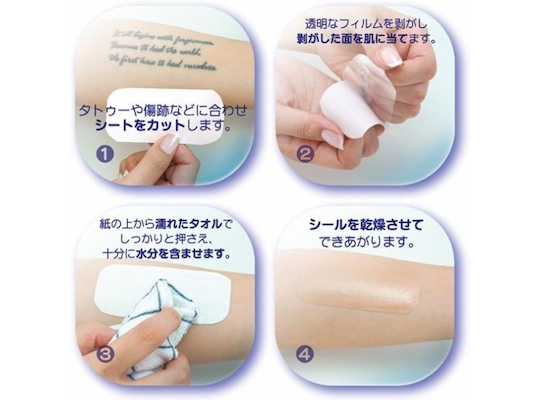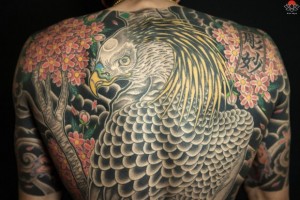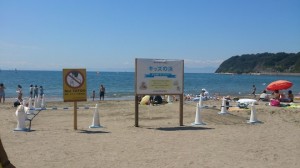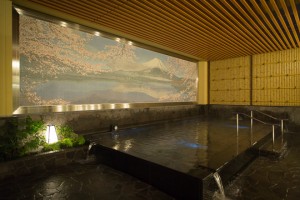Regular readers don’t need to be reminded of this: in Japan, a majority of hot springs (onsen), swimming pools (public and hotels), sports gyms, public beaches, and even some public baths (sento) will turn you away if you have a tattoo.
As we wrote before, the much-lauded Japanese hospitality of omotenashi “ends with your tattoo”.
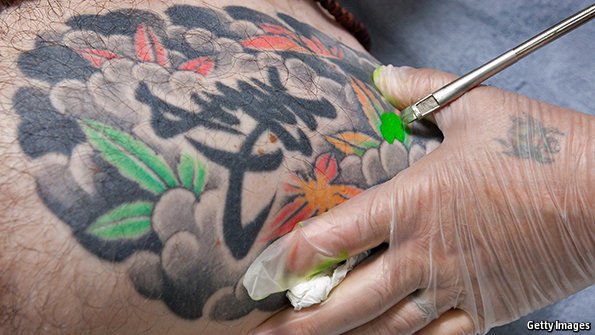
Of course, whether you are Japanese or foreign, you get the same treatment — but there is a larger number of non-Japanese people with body art who face this trouble, since most Japanese are aware of the “rule” and so avoid having a tattoo in the first place just to make their lives easier.
Tattoos in Japan, known as irezumi, are mistakenly associated only with the Yakuza criminal world.
This is why many public baths will still accept you, inked or not, since local inner-city communities are often the domains of gangsters and the bath-owners would be foolish to turn down a man missing a finger or two.
According to the Japan Tourism Agency, in the first survey of its kind released last month questioning Japanese inns and hotels, 56 percent said they do not allow body tattoos in their bathing facilities. But 31 percent said they do not turn tattooed bathers away, while 13 percent said body tattoos are permitted under certain conditions.
The agency said it received responses from 581 facilities from the 3,768 survey questionnaires sent out in June.
There is a growing movement against this prejudice, as seen in Tattoo Spot, the website which helps you find tattoo-friendly springs and baths.
As inbound tourism increases and we head toward the 2020 Olympics, the issue can only grow stronger.
Why is the “rule” so black-and-white? Clearly a 42-year-old German lady with a modest tattoo on her arm is not a gun-wielding gangster!
The major of Osaka, Toru Hashimoto, who allegedly comes from a family with some underworld ties, once launched a campaign against public officials with tattoos. “I will not tolerate tattoos on public service workers,” he said in 2012.
Of course, it’s hypocritical since some hot springs do certainly accept Yakuza. After all, if you have been following the Yamaguchi-gumi war you will know that a gangster was shot dead at an onsen resort in Nagano.
As The Economist recently noted, Japan hopes to increase its inbound tourist numbers from 15 to 20 million by 2020, and a third of visitors cite Japan’s fantastic hot springs as a reason for coming. Though perhaps less so with Asian sightseers, many North American or European travelers may have innocent tattoos somewhere on their bodies and then find themselves bewildered (and disappointed) by one of the more bizarre aspects of “Japanese culture”.
In fact, tattoos are a very vibrant and long-standing element of Japanese culture; don’t let anyone use the “culture” argument against your ink!
Susumu Kida, a government official, says the country is still exploring options. A fact sheet may be sent to the thousands of portals for foreign travellers explaining that tattoos do not carry the same social stigma elsewhere. “Much of the problem is caused by lack of knowledge about foreign cultures,” he says, citing the case of a Maori woman who was recently barred from a resort because of her elaborately painted face.
Attitudes are evolving, not least as pop culture figures like Namie Amuro have helped make tattoos more visible and acceptable to mainstream society.
In the meantime, there are options to help you; options that are also brilliantly Japanese. The problem is not dealt with — it is simply concealed and ignored.
More and more baths and springs are offering “patches” to customers so that they can cover up their offending tattoos.
There are also “tattoo covers” that you purchase yourself, so you don’t have to rely on a bath or spring having one. This means you can patch up your arm with waterproof stickers in advance and not have to deal with any fuss while this cultural shift works itself out.
We hope the 2020 Olympics changes things up but we doubt attitudes will alter for this generation at least. By the time the current owners and managers of resorts and baths have retired, perhaps then there won’t be a need for these kinds of “skin shields”.

